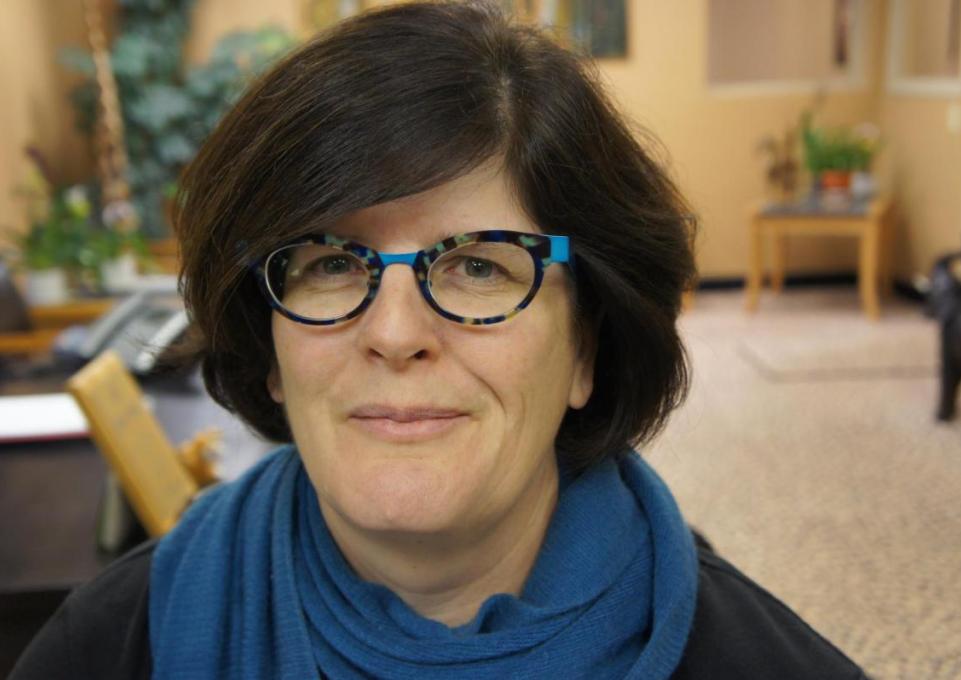
Meg Knowles, associate professor of communication and an award-winning documentary-maker, was not surprised by the results of a landmark study on diversity in Hollywood released this week. It revealed that an “epidemic of invisibility” runs throughout the film and television industry for women, minorities, and lesbian, gay, bisexual and transgender individuals.
“While quite a few women are writing and directing documentaries and independent films, when you get to Hollywood where more money is at stake, the landscape becomes much more noticeably male and white,” said Knowles, whose research areas include women in media and in film, diversity in Hollywood, and the independent film business.
According to the comprehensive study of 414 films and TV series conducted by the Media, Diversity and Social Change Initiative at the University of Southern California, Annenberg School for Communication and Journalism, only one-third of speaking characters were female and only 28.3 percent were from minority groups. And perhaps most stunningly, only 3.4 percent of the films studied were directed by women.
“You hear about a couple of well-known women directing films and assume there are more, when really there is just a handful,” said Knowles. “In television, the disparity is not quite as great, but the salaries also aren’t as high as they are in studio films.”
The study came out just days before the February 28 Academy Awards ceremony, which already has attracted scathing criticism for its lack of diversity among nominees and resulted in the social media campaign #OscarsSoWhite. For the second straight year, there is a slate of all-white nominees in the acting categories.
“It makes you ask, ‘What, have we already told our slave story and now we can move on?’ There are so many important stories not being told and some of the few films produced this year that featured minority actors weren’t nominated,” said Knowles. “You have to realize only a small pool of people is invited to be on the Academy Award committee and it’s not a diverse group.”
When it comes to green-lighting films, big studios tend to fall back on storylines that have been lucrative in the past, she said. And this means that new stories about underrepresented groups are never produced.
“We all deserve to see our stories in the films that Hollywood puts out,” she said.
Grooming the next generation of filmmakers to think about diversity in very real ways will help reverse this trend, Knowles said.
“Ultimately, effecting change in the film business starts with schools. As faculty members we want to guide students to be more inclusive and think more broadly,” said Knowles, one of two women out of four faculty members teaching media production. “I think having women teaching media production shows female students that they can do this. And we also have to think about how we assign projects in class to make sure everyone gets an equal chance to hold leadership positions on the crew.”
About Meg Knowles
Knowles joined the Buffalo State Communication Department faculty in 2006 and teaches documentary/media production, scriptwriting, and visual communication courses.
She produces and directs short documentary films and was also is a longtime producer and director for Termite TV Collective’s “Living Documentary” series, a program of experimental and activist media challenging the status quo and providing an alternative to corporate media.
Her work has been screened at festivals, galleries, and museums including the Museum of Modern Art, the Philadelphia Museum of Art, Anthology Film Archives, Portland PDX Film Festival, the Athens International Film & Video Festival, and the Dallas Video Festival as well as on Free Speech TV and PBS.
She holds a bachelor’s degree in art history from Vassar College, a master’s degree in media studies and art history from the University at Buffalo, and a master of fine arts in film media arts from Temple University.
